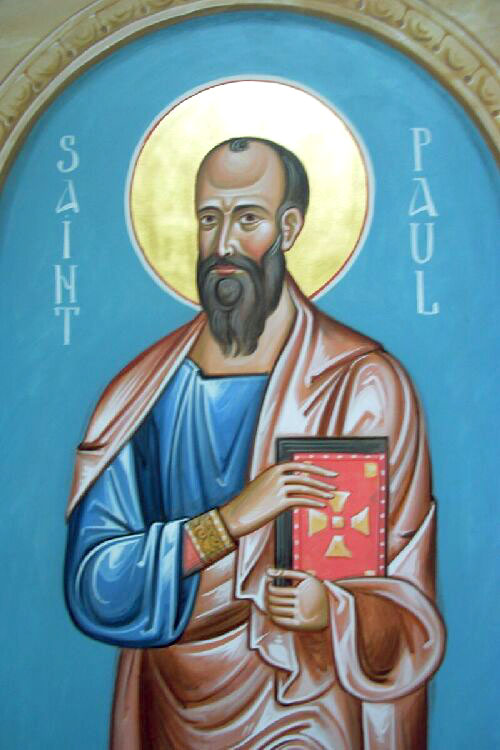“Remember that Jesus Christ of the seed of David was raised from the dead according to my gospel” – 2 Tim. 2:8
In these last days, as things move inexorably to the revelation of our Lord and Saviour Jesus Christ, whose coming we eagerly await, it is important to stay focussed on the Gospel: for it is the power of salvation unto all who believe. And make no mistake: whoever calls on the name of the LORD shall be saved.
In the days of the early Church, before the formulations produced at Nicaea and other councils and synods, the heart of the Gospel was phrased in a very few words indeed. In this way, any believer could prepare himself to share the precious news of Christ at any occasion, even to a jailor into whose charge he had been committed for refusing to worship the Emperor.
Such formulations may be found across the New Testament. Here are two of my favourites from the Apostle Paul.
“For I delivered to you first of all that which I also received, how that Christ died for our sins according to the scriptures; and that He was buried, and that He rose again the third day according to the scriptures: and that He was seen by Cephas, then by the Twelve”. -1 Cor. 15:3-5
“That if you confess with your mouth the Lord Jesus, and believe in your heart that God has raised Him from the dead, you shall be saved.” -Rom. 10:9
For Paul, the testimony of the Scriptures was essential in proclaiming the Gospel, and we find this pattern shared by Jesus (e.g. in the Emmaus Road story in Luke’s Gospel), and by other Apostles and evangelists, whose words are recorded in Acts. Paul preached first to the Jew, and then to the Gentile. The Jews, into whose care the oracles of God (including the Scriptures) were entrusted, were in a position to consult the Scriptures for themselves, to check that Paul was quoting them accurately.
Thanks to the work of translators (such as those who made the Septuagint), Gentiles also could access the Scriptures at local synagogues and libraries (and later churches). But without someone to help them understand (such as Philip in the case of the Ethiopian Eunuch), the Scriptures would remain largely mysterious to them.
Branching out from what one may call the “heart” of the Gospel, closer inspection of Gospel preaching as recorded in Acts reveals a pattern that provides an overview of salvation history, with Christ appearing in the “last days”, as the author of Hebrews puts it. If we believe that we should emulate the examples of the Apostles and evangelists of Acts, then we too must make some effort to learn more about preaching the Gospel in this fashion. Paul spoke of mankind’s sin since the days of Eden, of the coming of Christ to die for our redemption, and of the Last Day, when Christ, the Son of Man, would judge the children of Adam, both living and dead.
The church is not the same as the pictures given to us in Acts, but her DNA has not changed, if I may put it that way. Just as Catholics talk of the acorn and the tree (no doubt borrowed from Christ’s Parable of the Mustard Tree), so we must maintain that whether acorn or tree the ousia, the essence, the sine qua non, the DNA of the entity remains the same. We may be on the move, always seeking to understand how to bring the Gospel in a culturally-relevant way to the alienated, but the heart of the Gospel never changes. Salvation history is on record in the Scriptures for all to see, if members of the Church will volunteer to help the outsider understand.
At a time when people are arguing about Church and State, Righteousness and the Law, let us look to the example of Philip. The door of this Age of Grace has not closed yet, and there are many still who need to hear the Gospel of God’s grace.


Hello Chalcedon. Nice essay. From the Sacred Heart of Jesus to our lips and our neighbor’s ears is a simple choice and a movement of the will. Once we have accepted the Gospel and have given our assent to Jesus Christ, it will naturally flow outwards in love that communicates this same Gospel to others. It comes naturally. It is the power of Christ living in us and delivering His message of salvation to others who need it. We cannot be silent and claim to love and follow Him. Love of our neighbor as ourselves is to desire their salvation, just as we desire this for ourselves and since Christ is the only way to attain salvation, then we desire to know Him as He is knowable and also to give this knowledge to our neighbor. How is this accomplished and what does it look like? It is you at the grocery store in line waiting and smiling at the clerk as you check out and asking “have you prayed the Rosary lately?” and before he or she can reply in the negative, ask to be included in their next one. God can and does work with that little tiny mustard seed of an act of faith in Him and His salvific works. God bless. Ginnyfree.
LikeLike
Pingback: Around the Web | Notes On Liberty
Pingback: Hope by faith and free gift | Free Christadelphians: Belgian Ecclesia Brussel - Leuven